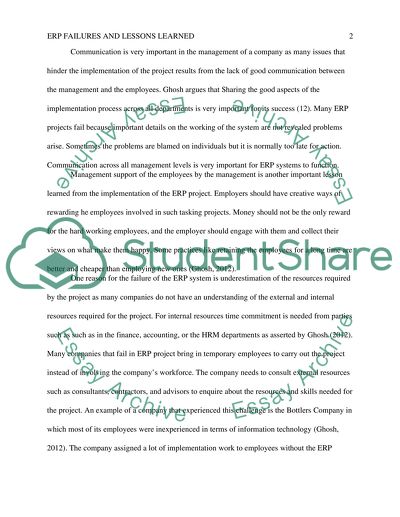Cite this document
(“ERP Failures Lessons Learned Assignment Example | Topics and Well Written Essays - 1250 words”, n.d.)
ERP Failures Lessons Learned Assignment Example | Topics and Well Written Essays - 1250 words. Retrieved from https://studentshare.org/information-technology/1696597-erp-failures-lessons-learned
ERP Failures Lessons Learned Assignment Example | Topics and Well Written Essays - 1250 words. Retrieved from https://studentshare.org/information-technology/1696597-erp-failures-lessons-learned
(ERP Failures Lessons Learned Assignment Example | Topics and Well Written Essays - 1250 Words)
ERP Failures Lessons Learned Assignment Example | Topics and Well Written Essays - 1250 Words. https://studentshare.org/information-technology/1696597-erp-failures-lessons-learned.
ERP Failures Lessons Learned Assignment Example | Topics and Well Written Essays - 1250 Words. https://studentshare.org/information-technology/1696597-erp-failures-lessons-learned.
“ERP Failures Lessons Learned Assignment Example | Topics and Well Written Essays - 1250 Words”, n.d. https://studentshare.org/information-technology/1696597-erp-failures-lessons-learned.


